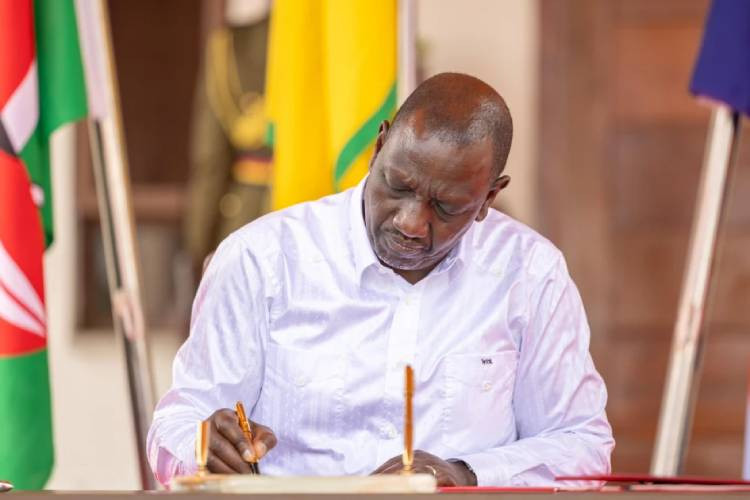Kenya exported 274.6 million kgs of tea to the international markets between January and June this year, compared to 302.8 million kgs in the same period last year.
In the six months, the commodity was exported to 53 countries, with Pakistan leading with import of 97.3 million kgs, and identified as the largest consumer of Kenya’s tea, followed by Egypt with 37.2 million kgs.
The United Kingdom 20.7 million kgs, UAE 13.3 million kgs.
A report by the Tea Board of Kenya (TBK) CEO, Mr Willy Mutai, dated August 11, indicates that in the month of June, Kenya exported 41.31 million kgs of tea to 52 countries, reflecting an increase compared to the same period last year of 40.61 million kgs.
ALSO READ: Tea exports dropped by almost 5 million kilos in April
The report details that in the month Pakistan bought the largest consignment, 12.43 million kgs, accounting for 29.9 percent of the total export volume.
“In June, Egypt bought 6.7 million kgs, ranked second, followed by the United Kingdom with 3.6 million kgs, Russia 2.4 million kgs, UAE 2.2 million kgs, among others,” read part of the report.
In the analysis, Hong Kong imported 79,380 kgs, compared to the previous 22,680 kgs, while Sudan bought 91,036 kgs from the previous 768,673 kgs.
In tea production, the report explained that in the month, tea producers produced 42.4 million Kgs, lower than 46.1 million kgs registered in the same period last year.
In the period, production by the small holder factories under KTDA and the independent producers dropped in the west, the rift from 32.89 million kgs to 29.14 million kgs, blamed on the adverse weather conditions.
Mutai says, KTDA factories registered a decline in green leaf production of 21.74 million kgs compared to 23.83 million kgs in June 2024.
“Similarly, the tea estates were equally affected, as they registered a decline to 10.365 million kgs from 12.16 million kgs,” read part of the report.
In June last year, Kenya exported tea to 53 countries.
“There was also a significant increase in exports to Switzerland, Sri Lanka, Nigeria, Turkey, and the Netherlands. Shipments to seasonal markets such as Israel, Georgia, Kyrgyzstan, Senegal, and France did well,” the report further explained.
In June this year, the Nyayo tea zones, the report indicated, also faced severe climate change challenges, in both west and east of the rift, thus recording a decline of 188,631 kgs down from 406,058 kgs of last year.
Stay informed. Subscribe to our newsletter
READ: Pact paves way for resumption of tea exports to Iran
In the local sales category, Kenyans consumed 3.21 million kgs, against 2.86 million kgs for the same period of 2024 and 2.85 million kgs recorded during the corresponding month of 2023.
“However, cumulative tea sales for the half-year period of 2025 were lower at 17.98 million kgs against 18.47 million kgs for the corresponding period of 2024 but higher compared to 17.40 million kgs for the same period of 2023,” said Mutai.
Tea value chain expert Peter Karomo says there was a need for the small-holding growers to embrace insuring their crop, to caution them from suffering due to the effects of climate change.
[email protected]

























